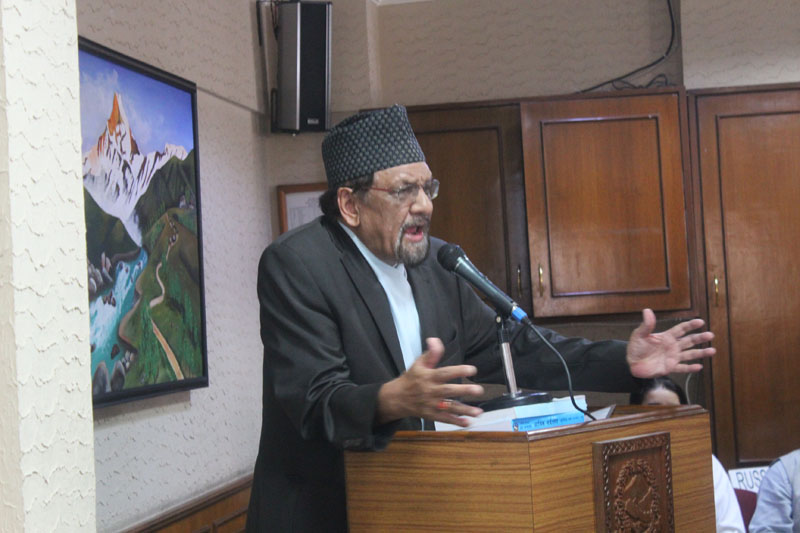'Bad politics' affecting Nepal’s economic development: Mahat
Kathmandu, December 29
Former finance minister Ram Sharan Mahat today said Nepalis’ growing mistrust towards Indian government was the result of ‘bad politics’, as he urged both the countries to keep politics out of economic issues.
“All the gains that we have made so far in (strengthening bilateral relationship) have been wiped away because of the unpleasant situation of the present. This is because of bad politics ... and it is very unfortunate,” Mahat said, adding, “It is an earnest desire of all Nepalis that trade and transit issues be kept independent from other matters.”
He made the statements during an interaction organised today by the Nepal-India Chamber of Commerce and Industry, the Indian Embassy in Kathmandu and the Asian Institute of Diplomacy and International Affairs.
Nepal has been facing disruptions in supply of various essentials, including petroleum products, since protests began in the Tarai — from where most of the goods enter the country — in mid-August. The situation became worse after a blockade was imposed on Nepal-Indian border points in the fourth week of September.
Since then, Nepal has turned to China for petroleum supply — although a deal on fuel trade has not yet been signed between the two countries at the government level.
“Nepal had to approach China because there was no alternative. But China can never replace India because of the difficult terrain in the north. Also, Nepal is virtually India-locked. So, we cannot play one off against the other,” Mahat said. “Suspicion and mistrust (between the two countries), therefore, should be removed, and priority should be given to economic development.”
After decades of political instability, Nepal had finally begun gearing up for higher trajectory of economic growth. In fiscal year 2013-14, Nepal’s economic growth stood at a six-year high of 5.2 per cent.
Then in April, a devastating earthquake struck Nepal, which reduced the country’s GDP growth to 3.04 per cent. Now because of protests in the Tarai and blockade on Nepal-India border points, the economy is expected to book a negative growth for the first time since 1983.
Addressing the gathering, Indian Ambassador to Nepal Ranjit Rae said the current problems were ‘aberrational’.
“It would end sooner rather than later,” he said. “And once the (problem) ends, India wants to hold serious dialogue with Nepal on issues that are creating the mistrust and discuss where India fits in Nepal’s economic development vision ... We want to hold serious discussions on these matters without sweeping issues under the carpet.”
Rae also clarified that ‘rumours India is deliberately trying to harm Nepal’ were far from truth, and ‘India has interest in Nepal, not in any constituency or community’.
“What India wants is stability in the region because we are aspiring for double-digit growth. And since we live in proximity, what happens in one country affects the economy, politics and security situation of the other. So, stability in the region is in India’s interest. Otherwise, we’ll have to divert resources and attention to other issues, which will affect economic development,” he said.






